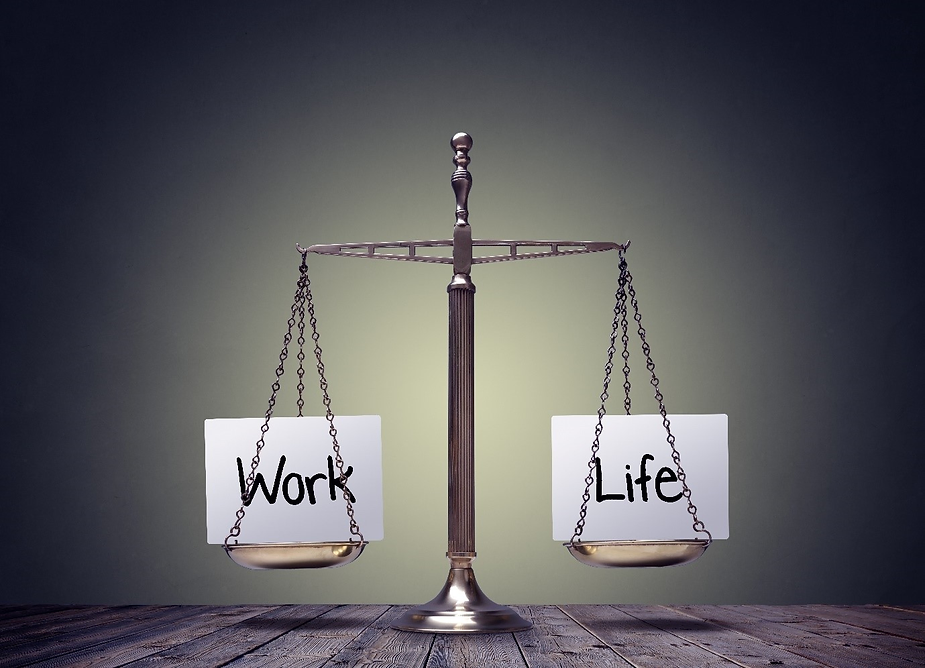What is Work/Life Balance?
In today’s fast-paced society, the human resource professionals continuously seek agile options to positively impact their organization’s environment at large.
In doing so, they want to improve the employee morale, by retaining the valuable employees with the organization’s culture while keeping up with the pace of the global trends.
Looking at the global organizations at large, the challenge of work/life balance is rising, and many employees are consciously seeking for solutions on the same.

But what exactly is the work-life balance? Let’s learn more about it.
Work/Life balance is a state of equilibrium in which the importance of both a person’s job and personal life is equal. Although one may say that Work/Life balance is the equal distribution of time between these two spaces, it needs to be defined more broadly.
Over the years the meaning of having a good Work/Life balance has evolved, and the benefits of having flexible work hours are being more widely accepted as organizations prioritize the happiness and well-being of their employees first.
How does one identify imbalance in one’s work and life?
Here are a few signs.
Being tired, distant and reclusive – One seems to be always tired, whether you are travelling to work or even thinking about work. The feeling of just dragging from one thing to another, is monotonous and one feels both stagnant and overworked.
Higher risk of frequent mistakes – When one feels distant from others and there is no room for togetherness, there is a higher scope of making mistakes, as one finds it difficult to focus.
The gradual increase of stress level – When one is making frequent mistakes, one has the tendency to fall ill physically, as they say the power of mind over body!
Thereby, higher the pressure of performance, higher is the amount of stress level one has!
Increase in overtime without specific causation – When one values completing the hours of work only and is way over stressed to care about the productivity as a holistic mode of development, is when even though the employee is spending hours of time on the work sadly fails to deliver and meet his/her targets.
Unorganized and cluttered workspace – When the employee does not get a homely vibe from the space in which he/she has to be productive, it is quite common for the employee to not feel the space, for his ultimate growth and collaboration.
It is only when the employee, will have clear key responsibilities briefed, a proper guidance for growth in a stress free environment, is when it will be easy for him to achieve his/her targets.
Missing out on collaboration in the office due to frequent leaves – If one does not attend the office and make the efforts to regularly attend the workspace with his/her team members, it is very difficult to have a productive and collaborative environment, to achieve the targets for the same.
To not to be able to have a Work/Life balance, in one’s life, is when one might randomly take leaves without managing either work or personal life creating a level of conflict between employees within the organization.
Now when one knows about the symptoms of the lack of Work-life balance. The question is what should one do?
The answer is simple. Exercise!

Now the immediate question would be, how does that help?
In order to create an ideal work-life balance, one of the key solutions is to exercise.
In the beginning it might look like a time-consuming task to add an additional one to the list to fit in each week.
However so, gradually the benefit of exercising regularly appears to outweigh the effects of having to find the time to stay consistently fit.
The perspective with which we are looking at it can be different. It might initially feel like taking out time, from work or family, to exercise.
It might also feel being selfish and being involved in an unnecessary indulgence, but many studies show that taking out time to exercise for oneself daily can make one more productive and focused, both at home and at work, that is in the corporate and personal journey of life.
Finding the time to commit to one’s set goals of going to the gym, might initially appear as a difficult task to achieve but, exercising on a regular basis not only improves your physical well-being but also your mental one.
Most working adults commonly suffer from stress and anxiety. Researchers have concluded that exercising is a fantastic way to relieve stress. Doing regular exercise helps to release endorphins in the bloodstream and thus ultimately helping us to relieve stress. Endorphins help in the benefits as follows:
Endorphins helps to lower the level of stress and anxiety – When the level of stress and anxiety reduces, there are less chances for one to fall into depression, and experience loneliness.
Increasing self-esteem – When stress and anxiety procure, it is known for one to fall into depression, and think very low of oneself, and when one thinks low of oneself, one tends not to be productive to the full utilization of one’s talent. Thereby regular exercising, keeps one’s, self-respect intact.
Regulation of appetite – Continuous stress and anxiety, creates lots of pressure in one’s life, and in so much of stress one loses the appetite to eat, ultimately losing on the nutrients required for the focus of the mind and for productive work. With regular exercising being in place, one feels hungry and eats, leading to a healthy lifestyle, achieving Work/Life balance for the same.
Increase in Self-Efficiency & Endurance – When one eats nutritious food and is healthy and balanced in both work and personal life, one tends to be more efficient, organized and focused.
Not only that, when one is on track with one’s work, he/she is more focused and has lesser time to focus on anything irrelevant and unproductive. Thereby one’s endurance becomes stronger, as one’s individual goal becomes parallel to the goal of the team.
The regular challenges of life can be wisely resolved if one exercises regularly and has a healthy lifestyle.
It is often, seen in studies and research that people who exercise daily can organize different aspects of their life smoothly, and they do not thrive on preconceived notions, allowing them to be present, active and positive in the moment.
When one seems to organize one’s life, smoothly, namely both corporate life and personal life, one is comparatively stress-free and more productive, and there is an overall increase in the Work/Life balance.
